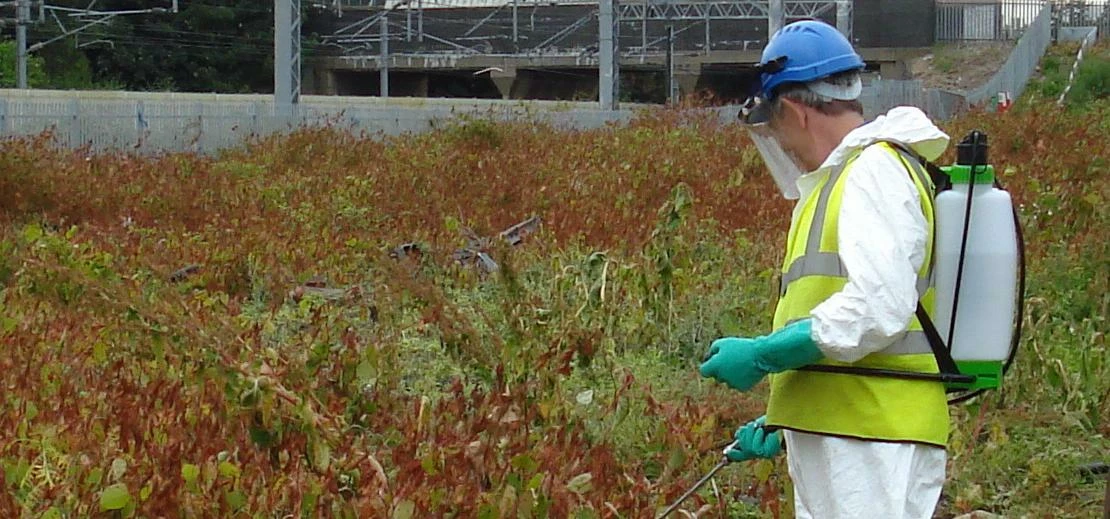
Partner Article
Glyphosate - seeking an alternative solution
Thomson Habitats, sister company to leading ecology consultancy Thomson Ecology is testing out new environmentally friendly alternatives to glyphosate following concerns about the carcinogenic properties of the chemical.
Powerful weed killers, such as Monsanto’s Roundup, are widely used as an efficient and practical solution for the treatment of invasive plant species, including the notorious Japanese knotweed. The active ingredient in Roundup is glyphosate, which has been used extensively in farming, and in towns and cities to control grass and weeds for years. It is also widely available in every garden centre for anyone to buy and to use in their own back gardens.
However, several countries, including Holland, Denmark, Sweden and Sri Lanka have banned or restricted the use of glyphosate herbicides because of alleged links with a variety of health problems, including cancer, birth defects and kidney failure, amongst others.
However, over 30 studies have concluded that there is “no validated or significant relationship” between glyphosate and cancer among humans. But, world-leading experts at the International Agency for Research on Cancer (IARC, an arm of the World Health Organisation), concluded last year that glyphosate was “probably” carcinogenic.
Thomson Habitats has effectively used glyphosate-based herbicides as part of Japanese knotweed treatment programmes on many sites in the UK over the past few years. Japanese knotweed, described by the Environment Agency as “indisputably the UK’s most aggressive, destructive and invasive plant”, responds particularly well to repeated spraying with glyphosate.
David Grimmond, Project Manager at Thomson Habitats said:
“With uncertainty growing as to the safety of glyphosate, we are now looking into alternative treatments, including a herbicide-free hot foam. We hope that we can find a safer alternative, that is just as effective.”
Glyphosate-free weed killers are still in the early stages of development however, and some are rather more outlandish than others. It has been reported recently that one City Council is trialling the use of vinegar for killing weeds, but some residents have complained about the smell. “With that in mind”, says Dave, “Thomson Habitats may skip that particular option, but we will observe the results with interest, and look forward to sharing the results of their own research over the coming months.”
This was posted in Bdaily's Members' News section by Thomson Ecology .
Enjoy the read? Get Bdaily delivered.
Sign up to receive our popular morning National email for free.








 Raising the bar to boost North East growth
Raising the bar to boost North East growth
 Navigating the messy middle of business growth
Navigating the messy middle of business growth
 We must make it easier to hire young people
We must make it easier to hire young people
 Why community-based care is key to NHS' future
Why community-based care is key to NHS' future
 Culture, confidence and creativity in the North East
Culture, confidence and creativity in the North East
 Putting in the groundwork to boost skills
Putting in the groundwork to boost skills
 £100,000 milestone drives forward STEM work
£100,000 milestone drives forward STEM work
 Restoring confidence for the economic road ahead
Restoring confidence for the economic road ahead
 Ready to scale? Buy-and-build offers opportunity
Ready to scale? Buy-and-build offers opportunity
 When will our regional economy grow?
When will our regional economy grow?
 Creating a thriving North East construction sector
Creating a thriving North East construction sector
 Why investors are still backing the North East
Why investors are still backing the North East